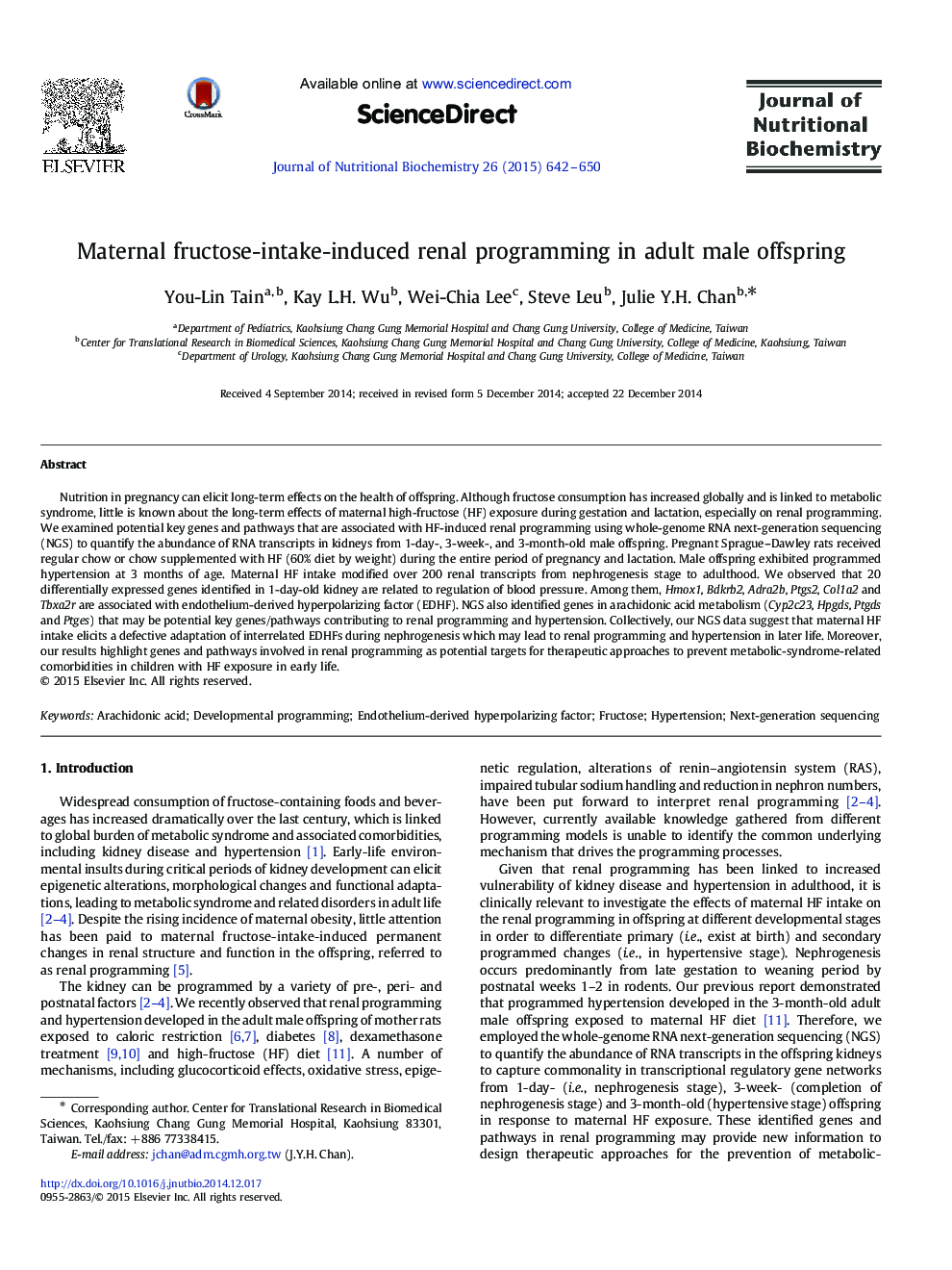| Article ID | Journal | Published Year | Pages | File Type |
|---|---|---|---|---|
| 8336953 | The Journal of Nutritional Biochemistry | 2015 | 9 Pages |
Abstract
Nutrition in pregnancy can elicit long-term effects on the health of offspring. Although fructose consumption has increased globally and is linked to metabolic syndrome, little is known about the long-term effects of maternal high-fructose (HF) exposure during gestation and lactation, especially on renal programming. We examined potential key genes and pathways that are associated with HF-induced renal programming using whole-genome RNA next-generation sequencing (NGS) to quantify the abundance of RNA transcripts in kidneys from 1-day-, 3-week-, and 3-month-old male offspring. Pregnant Sprague-Dawley rats received regular chow or chow supplemented with HF (60% diet by weight) during the entire period of pregnancy and lactation. Male offspring exhibited programmed hypertension at 3 months of age. Maternal HF intake modified over 200 renal transcripts from nephrogenesis stage to adulthood. We observed that 20 differentially expressed genes identified in 1-day-old kidney are related to regulation of blood pressure. Among them, Hmox1, Bdkrb2, Adra2b, Ptgs2, Col1a2 and Tbxa2r are associated with endothelium-derived hyperpolarizing factor (EDHF). NGS also identified genes in arachidonic acid metabolism (Cyp2c23, Hpgds, Ptgds and Ptges) that may be potential key genes/pathways contributing to renal programming and hypertension. Collectively, our NGS data suggest that maternal HF intake elicits a defective adaptation of interrelated EDHFs during nephrogenesis which may lead to renal programming and hypertension in later life. Moreover, our results highlight genes and pathways involved in renal programming as potential targets for therapeutic approaches to prevent metabolic-syndrome-related comorbidities in children with HF exposure in early life.
Keywords
Related Topics
Life Sciences
Biochemistry, Genetics and Molecular Biology
Biochemistry
Authors
You-Lin Tain, Kay L.H. Wu, Wei-Chia Lee, Steve Leu, Julie Y.H. Chan,
